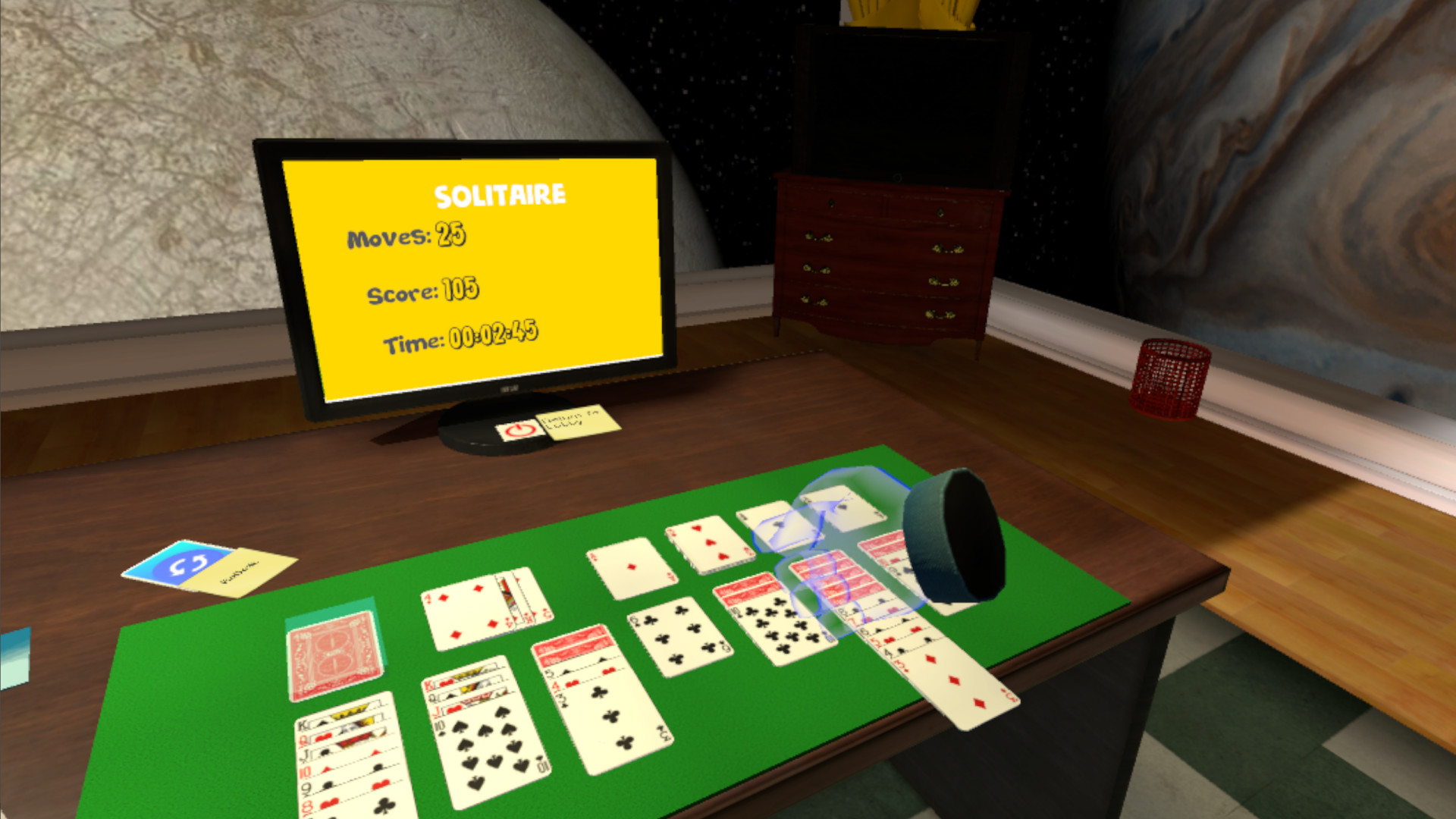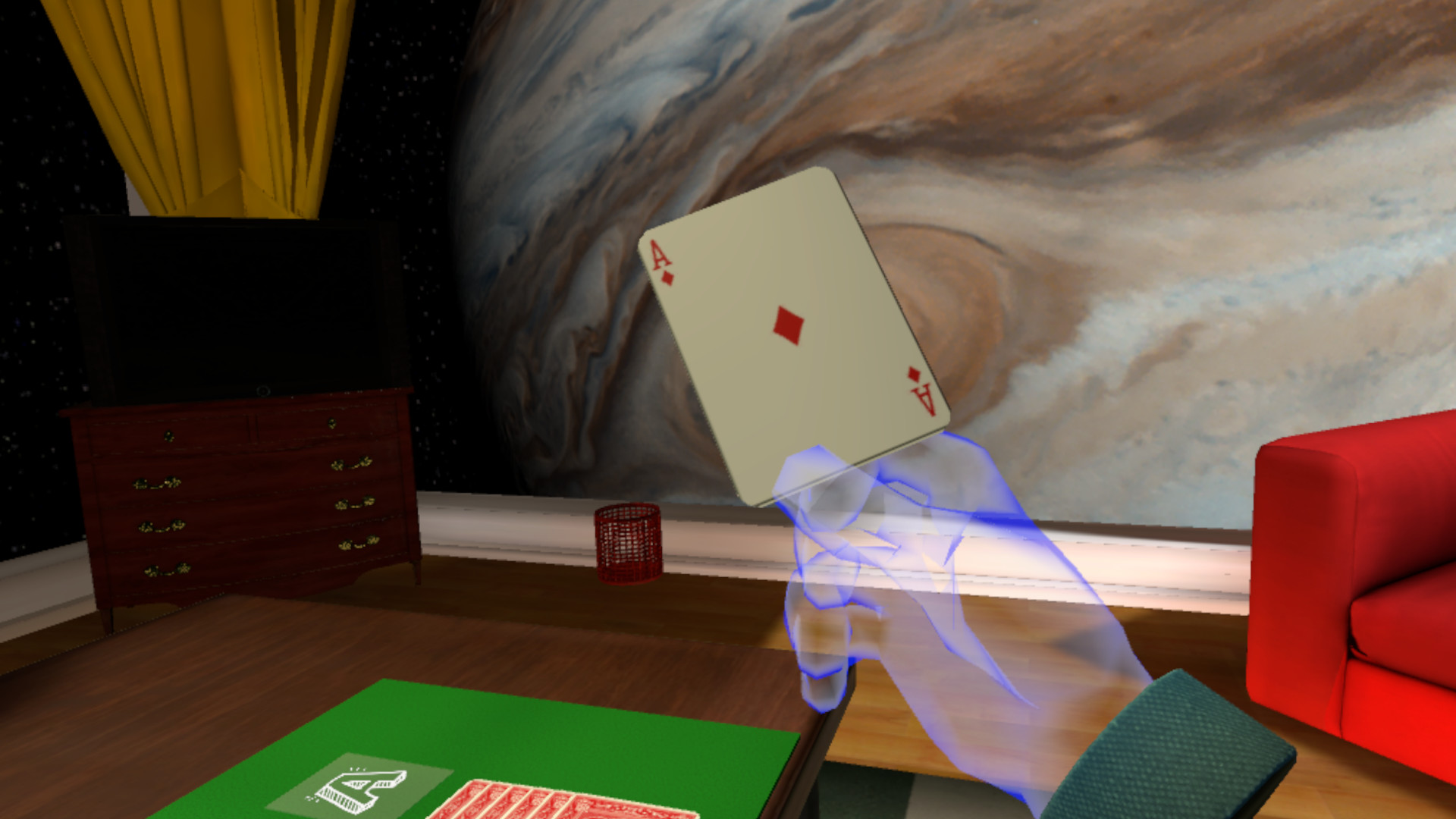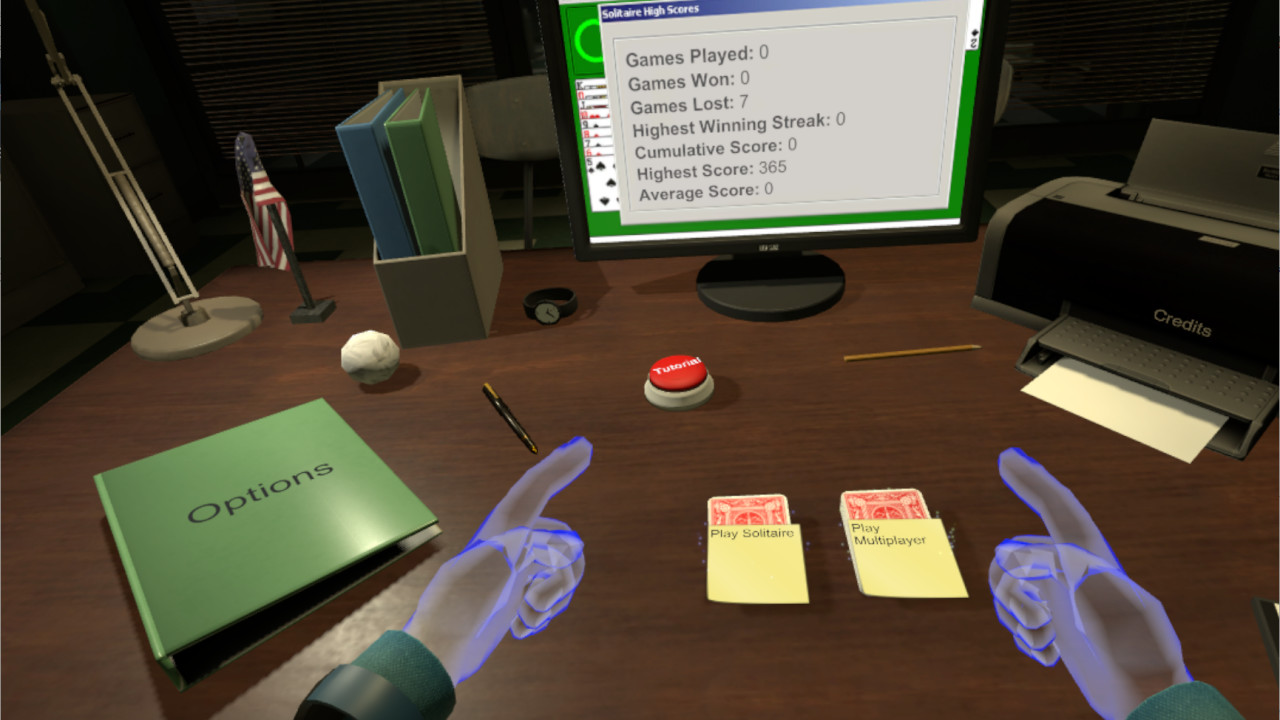
As of this writing, it's been almost 10 years since the first Oculus Rift development kit headsets shipped out to the project's Kickstarter backers. Virtual reality has become more accessible than ever - for better, or worse. While most headsets are of the "plastic shell with straps, insert smartphone to begin" variety, big box retail stores like Best Buy carry the likes of the Oculus Quest 2, a headset that (by my understanding) acts as a self-contained game machine. Of course, a "core gamer" like myself prefers a headset that connects to a computer (which, to be fair, the Quest also does), taking advantage of all that extra horsepower to do things like play fetch with a robot dog, fire a potato cannon at human-sized sentient sausages, or... ahem... Play the world's most expensive free game of solitaire. With complete VR setups - headset, motion controllers, and "lighthouses" - running between $500 and $1,300 USD (assuming they're in stock), this is no joke.
Power Solitaire VR, a Unity-powered, virtual reality based Solitaire game, sets you behind a desk in an office and tasks you with, well, playing a game of Solitaire. Initially it's a humdrum little room in a dimly lit workplace, vaguely resembling police stations in many modern procedural crime dramas, but as soon as you grab a deck off the table, you are whisked away to a room of wonders, nothing but picture windows, the odd potted plant in the corner, and the game of Klondike dealt before you on a table. Moving cards around is as simple as reaching your virtual hand towards them and grabbing them (in the method appropriate for your motion controller of choice). Because this is Virtuality, you can do things like fling that troublesome Jack of Clubs out the window, and seconds later, it'll appear right back where it was.

Contemplating defenestration of this innocent Ace of Diamonds.
Speaking of flinging things out the window, Power Solitaire has a number of unique backgrounds to choose from, and these are represented on your card table as photographs. Defenestrate the image of your choice, and the view outside your windows will become that of the photo. Play your game on a cozy farm stead, or deep in the mountains, or in orbit above Mars (with an astronaut occasionally floating by).
Now, to be completely honest, I definitely didn't buy my Valve Index kit to play solitaire. Power Solitaire VR, even, barely warranted more than about 20 minutes of play time for me, despite being free to play (their money is made from purchases of Ad Removal, primarily). The game, to its credit, has an online multiplayer mode, but as I do not personally know anybody else willing to make such an investment, I have no idea how it works. The game does also allow you to play against an intelligent robot, which somehow escaped my notice until writing this, and I haven't felt enough like trying it.

Giving the finger-guns to one's highly accomplished victory record. Eyyy!
To be honest, virtual reality somewhat reduces the appeal of computerized solitaire. While the game is still willing to shuffle and deal the cards for you, manipulating the cards with your actual hands, without the benefit of any real tactility, makes the game more laborious. This is, certainly, the point of solitaire to some, but to me, I often wondered why I didn't just break out one of my 500-some decks and play it on a real table. This would certainly give me that much-needed sense of touch, and also enable me to cheat when that crucial Ace is stuck behind something. About the only thing VR adds to the physical act of solitaire, is guilt-free, consequence-free card flinging. I could certainly chuck a Jack of Spades across a room (or, more likely, have it curve awkwardly and land on the floor six feet away - Ricky Jay, I am not). But only in VR am I freed from the obligation to go pick that card back up.
If playing solitaire like a wanton little gremlin appeals to you, Power Solitaire VR can be found on Steam for no money, or you can disable the advertisement breaks for $5.